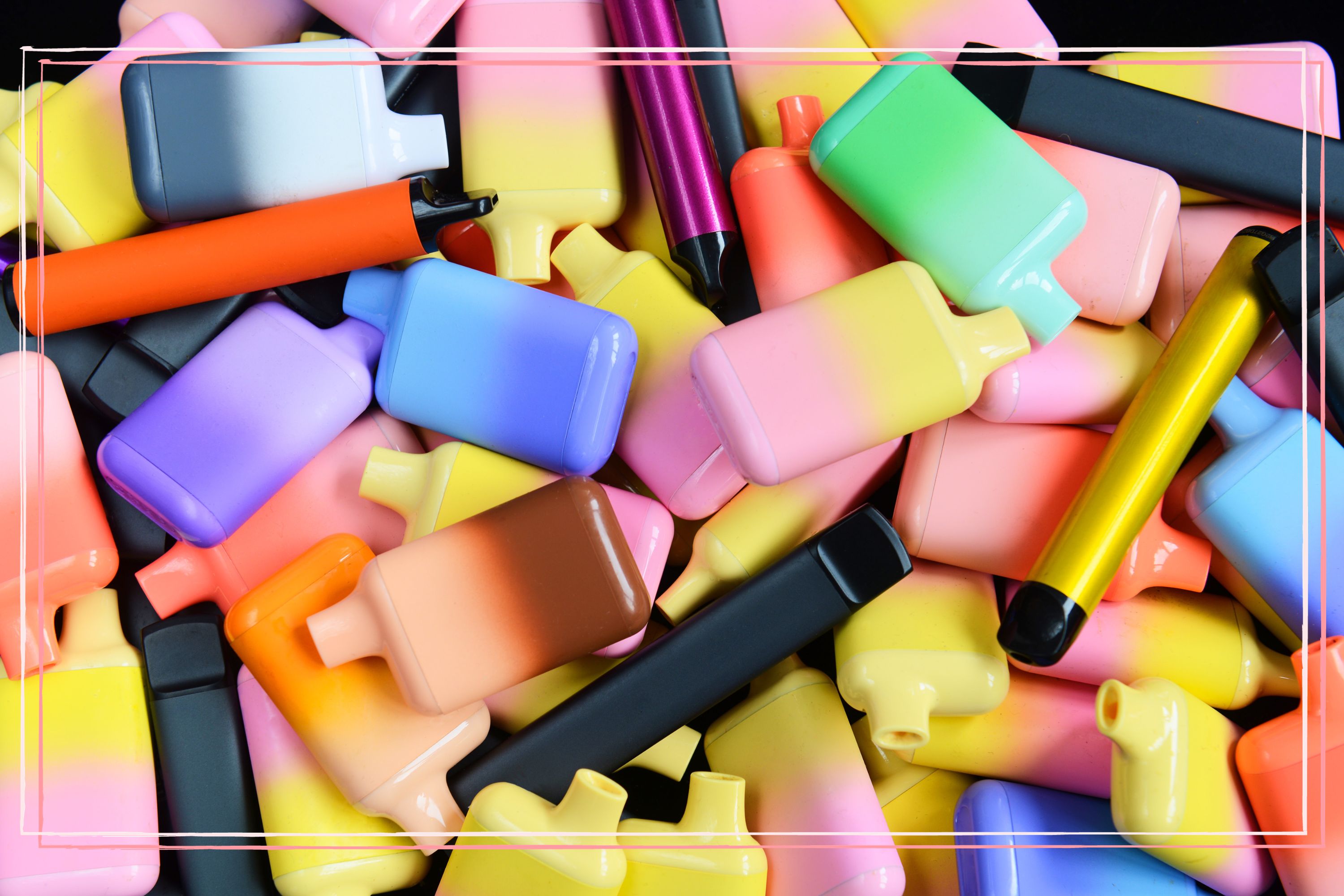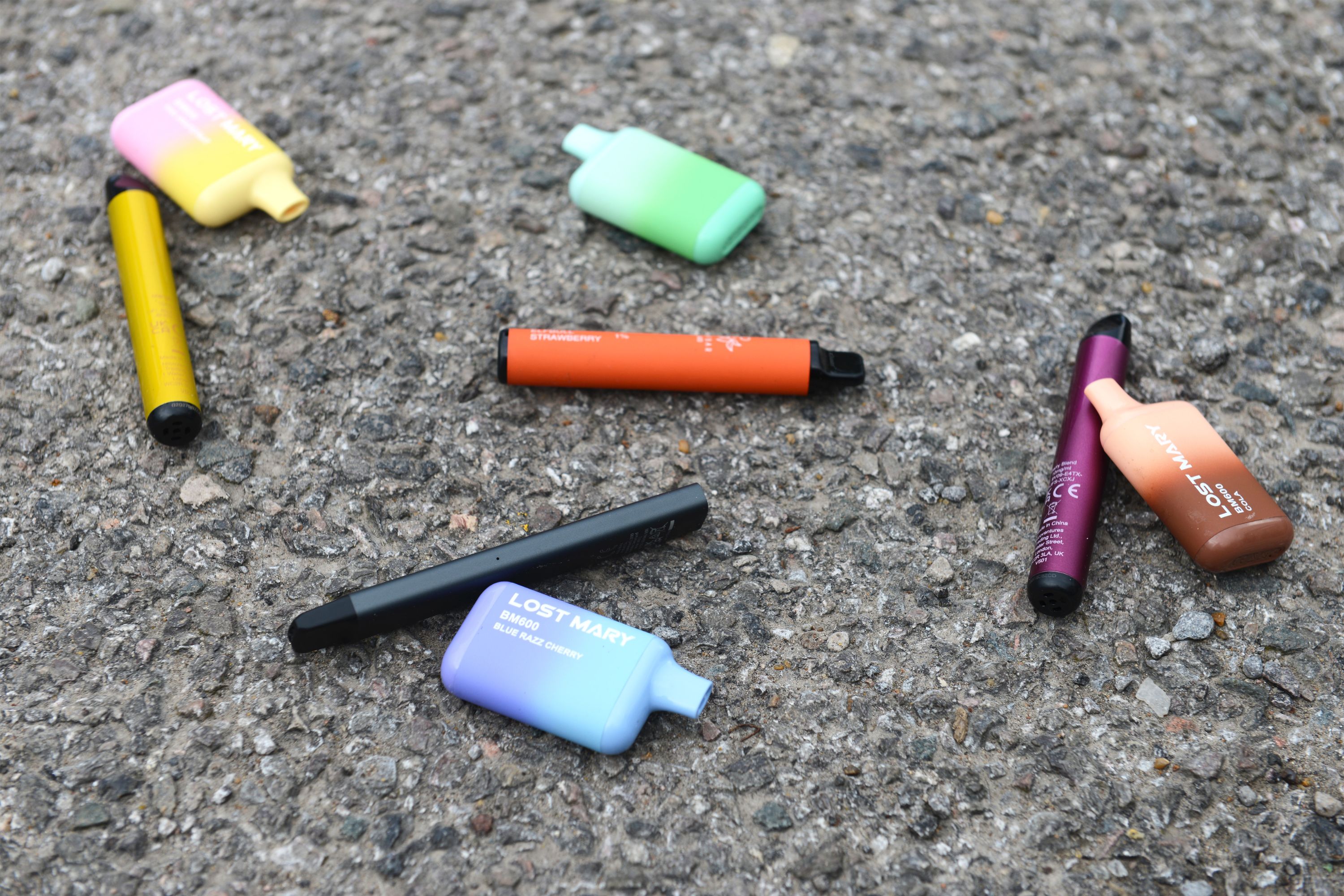When will vapes be banned? Everything to know about the restrictions, following child addiction fears
Disposable vapes will be banned in the UK as part of government plans to protect children's health


Discussions around the impact of vaping have been circling for a while, and now the UK government has confirmed plans to ban them - but many want to know when vapes will be banned.
While vaping can be an effective quitting tool for smokers, it has become popular among those without a pre-existing nicotine addiction. And with concerns about health risks and lung problems linked to vaping, the UK government is beginning to crack down on the vape industry. It's already a habit that could result in a £2k fine if you're caught vaping while driving, but most recently the main concerns have centred around the number of teenagers and young people who have taken it up.
Disposable vapes often come in sweet and fruity flavours, packaged in colourful and eye-catching boxes and frequently placed near confectionery in shops, all of which has led the government to accuse companies of targeting children with their marketing. Much like the dangerous TikTok trends that have caused concern among parents in recent years, the availability of vapes is an increasing source of worry, and the potential impact on children has now led the government to ban disposable vapes, along with further restrictions.
UK vape ban confirmed
Disposable vapes will be banned in the UK under new laws. The news was announced by Prime Minister Rishi Sunak on January 29, and it is part of government plans to tackle the rise in youth vaping and protect children’s health.
Announcing the ban, the government said, "New powers will be introduced to restrict flavours which are specifically marketed at children and ensure that manufacturers produce plainer, less visually appealing packaging. The powers will also allow government to change how vapes are displayed in shops, moving them out of sight of children and away from products that appeal to them like sweets."
We’re banning disposable vapes to protect children’s health. Today’s plan will allow us to restrict vape flavours, introduce plain packaging and change how vapes are displayed in shops so that they don’t appeal to children.January 29, 2024
In addition, new fines will be brought in for shops in England and Wales which sell vapes illegally to children.
Prime Minister Rishi Sunak said: "As any parent or teacher knows, one of the most worrying trends at the moment is the rise in vaping among children, and so we must act before it becomes endemic.
Parenting advice, hot topics, best buys and family finance tips delivered straight to your inbox.
"The long-term impacts of vaping are unknown and the nicotine within them can be highly addictive, so while vaping can be a useful tool to help smokers quit, marketing vapes to children is not acceptable.
"As Prime Minister, I have an obligation to do what I think is the right thing for our country in the long term. That is why I am taking bold action to ban disposable vapes - which have driven the rise in youth vaping - and bring forward new powers to restrict vape flavours, introduce plain packaging and change how vapes are displayed in shops. "
When will vapes be banned in the UK?
The date that the vape ban will come into effect is yet to be decided. However, Health Secretary Victoria Atkins told the BBC she was confident the new bill would pass Parliament by the time of the general election - expected to be this year - with it coming into force in early 2025.
Once the timing is confirmed, retailers will be given six months to implement it.
It follows last year's announcement of a ban on the sale of cigarettes to anyone born on or after 1 January 2009 as part of an attempt to create "the first smoke-free generation". It means children who are turning fifteen this year or are younger can never legally be sold tobacco.
Victoria Atkins said, "Smoking is still the single largest preventable cause of death in England. Almost every minute of every day someone is admitted to hospital with a smoking-related disease...That’s why we are driving the way forward through our smokefree generation plan, which will prevent our children from starting this dangerous habit."
She added, "By banning disposable vapes we’re preventing children from becoming hooked for life."
Why are vapes being banned in the UK?
The decision to ban disposable vapes stems from both health and environmental concerns. The government shared that recent figures show the number of children using vapes in the past three years has tripled, and use among younger children is also rising, with 9% of 11 to 15-year-olds now using vapes
This has raised concerns about the effects of vaping in children, especially as not much is known about the long-term health implications.
Announcing the ban, the government added: "Disposable vapes have been a key driver behind the alarming rise in youth vaping, with the proportion of 11 to 17-year-old vapers using disposables increasing almost ninefold in the last two years."
Meanwhile, Environment Secretary Steve Barclay said: "Not only are disposable vapes often targeted, unacceptably, at children - they also represent a huge and growing stream of hard-to-recycle waste, with nearly five million thrown away every week."
The government says that this figure is up from 1.3 million from last year. Over a year this is equivalent to the lithium batteries of 5,000 electric vehicles.

Child addiction concerns: Everything to know
Recent years have seen a large increase in vaping among teenagers and young adults, with health professionals worried about the long-term effects of vaping from a young age.
Recent figures from the Office for National Statistics show that just under one in six people aged 16-24 vape at least occasionally - up from one in nine in 2021. Meanwhile, NHS research found that e-cigarette use for 15 year old girls increased from 10% in 2018 to 21% (around 1 in 5) in 2021.
These figures have been reflected in hospital admissions, with the NHS reporting that 40 children and young people were admitted to hospital in England in 2022 due to "vaping-related disorders", which included lung damage or worsening asthma symptoms - up from 11, reported two years earlier.
Meanwhile, research from The Hospital for Sick Children presented at the European Respiratory Society International Congress found that young people who vape are twice as likely to report chronic stress compared with peers who abstain.
Family psychotherapist, Fiona Yassin, founder of The Wave Clinic, explained the potential consequences of vaping at a young age: "Because a young person’s brain is still developing, they are more vulnerable to the impact of certain external and internal factors. Distressing experiences, substances, and trauma can not only impact their current physical and mental health but affect the way their brain develops in the future. This may lead to long-term changes in their mental health, physical well-being, and interactions with others."
Research shows that cigarette smoking is linked to:
- Poor academic performance
- Sleep problems
- Cognitive impairment
- Attention deficits
- Depression
- Aggressive and impulsive behaviour
Offering some advice on talking to your child about vaping, Fiona said, "Make sure that you come from a place of care and concern rather than judgement. Listen to what they have to say and ask them questions about the reasons that they vape. Avoid using threats and ultimatums: instead, tell them directly and clearly that you don’t want them to vape and explain the dangers and risks."
She added, "If your child wants to stop vaping but is unable to, you may want to speak to them about professional help. Doctors, other mental health professionals, and specialist programs can offer effective support for smoking cessation and help young people to leave e-cigarettes behind."
In other news, one mum has warned parents over a popular baby craze, while Busted's Charlie Simpson has highlighted issues over secondary drowning risks for children, after his own son was sent to hospital.

Ellie is GoodtoKnow’s Family News Editor and covers all the latest trends in the parenting world - from relationship advice and baby names to wellbeing and self-care ideas for busy mums. Ellie is also an NCTJ-qualified journalist and has a distinction in MA Magazine Journalism from Nottingham Trent University and a first-class degree in Journalism from Cardiff University. Previously, Ellie has worked with BBC Good Food, The Big Issue, and the Nottingham Post, as well as freelancing as an arts and entertainment writer alongside her studies. When she’s not got her nose in a book, you’ll probably find Ellie jogging around her local park, indulging in an insta-worthy restaurant, or watching Netflix’s newest true crime documentary.